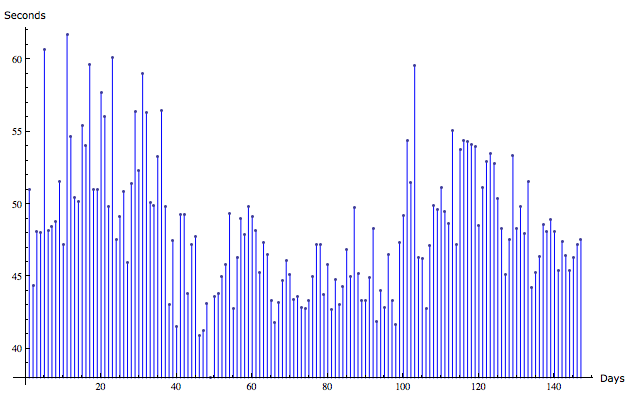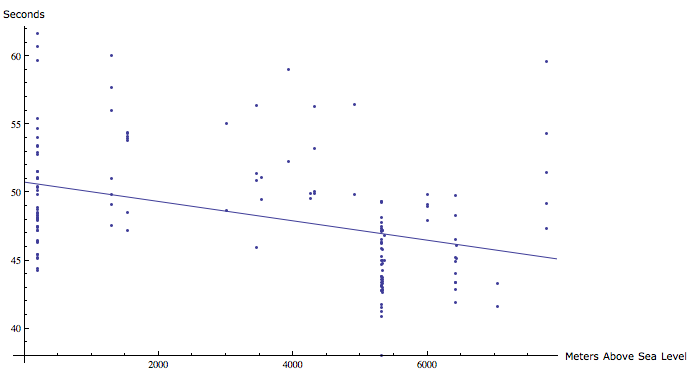Before I left for Everest back in March, I reached out to a group of neuro-scientists who were doing a study on the effects of altitude on memory. I had read articles in the past that suggested that people who spent a large amount of time climbing at high altitudes (14,000 ft and higher), returned with minor brain deterioration, similar to patients with Alzheimer's disease. These scientists were trying to show that that this actually wasn't true and that spending time in low-oxygen environments had no effect on memory at all. Because oxygen levels in the elderly tends to be lower than average, they were out to prove that those low levels were not instigators for memory related issues, namely Alzheimer's disease.
Back when I climbed Denali in 2009, I had only just started dabbling in memory improvement and training. Last year on Mont Blanc, the trip was so short and busy, I never had a chance to train while I was there. But this year, on Everest, I was sure I would have a lot of down time. So I contacted the scientists and told them that I would be training my memory on Everest and documenting the results as I climbed to higher and higher altitudes. They were ecstatic!
So I managed to keep a strict regiment of memory training while on the mountain. The training was simple: in the morning, two attempts of memorizing a deck of cards and in the afternoon: two attempts of memorizing as many digits as I could in 5 minutes. The results were absolutely astonishing.
First let's talk about cards. This year I set the USA record for memorizing a deck of cards in the fastest time (63 seconds), but in practice I had been in the low 50, high 40 second range (things are different in training vs stressful competitions!). As I climbed from 9,000 ft to 26,000 ft (Camp 4) on Everest, my scores increased to an average in the low 40 second range, even maxing out at a personal best of 38 seconds! Here is a plot of my times vs days (this is from mid-March to mid-June, a bit before Everest till a bit after):
As you can see, the times vary, but an average trend of decreasing time is visible. You can see that as I got to higher altitudes (which is the middle part of the plot), my times were faster, and then when I returned to sea level, the scores rose again. What's interesting is that certain peaks (where I was slower) coincide with days where we were pushing our bodies to a new, higher altitude. But once my body had acclimatized (say, a day later), the scores plummeted. It was as if my brain was like "oh shoot, hold on, let me figure out this lack of oxygen thing....ok got it...." then boom, overdrive memory ensued. Let's take a look at my memorization times vs. altitude:
The fitted line I calculated shows an obvious downward slope as the altitude increases, which is amazing. This was my experience on Everest, that my memory improved with elevation. Now, there could have been multiple factors here other than oxygen. I could have been experiencing less stress, I could have had less things clouding my mind, or I could have had had more time to focus on the single task of memorizing. I don't think that any of those are the case though. I really believe it was the altitude affecting my memory. How else can you explain it getting "worse" again when I returned to normal elevation? On top of that, I just felt a clarity of memory that I had never experienced before. Not only was my working memory doing incredibly well, so was my autobiographical memory.
As for memory of numbers, the results were similar. At sea level, I had been scoring about 260-290 digits in 5 minutes. On Everest, that increased to between 280-320 digits. Quite an improvement.
Tomorrow I will delve into the reasons why I think that altitude was the main factor in improving my memory on Everest.
Cheers.
Please post any thoughts on this, I'd be curious to see what other people think.

